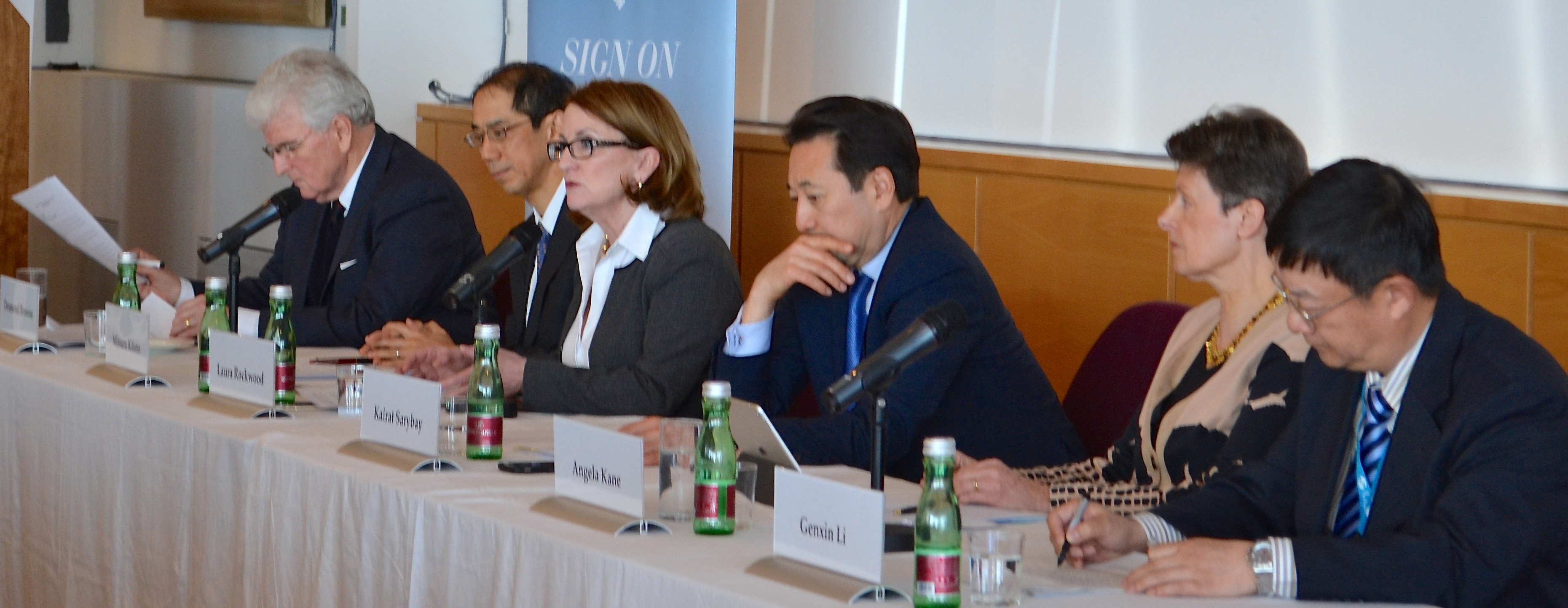
In 2015, the Governments of Japan and Kazakhstan served as the co-presidents of the biennial conference to facilitate the entry into force of the Comprehensive Nuclear-Test-Ban Treaty (CTBT) required under Article XIV of the Treaty (the “Article XIV Conference”). Since then, these countries have served as the co-coordinators for facilitating the CTBT’s entry into force within the Article XIV process. With their Governments’ two-year terms as co coordinators winding down, the Permanent Mission of Japan to the International Organizations in Vienna and the Permanent Mission of the Republic of Kazakhstan to the International Organizations in Vienna, with the Vienna Center for Disarmament and Non Proliferation (VCDNP), convened a workshop on “Achieving the Entry into Force of the Comprehensive Nuclear Test-Ban Treaty (CTBT).” The event took place on the margins of the first Preparatory Committee (PrepCom) meeting for the 2020 Review Conference of the Treaty on the Non Proliferation of Nuclear Weapons (NPT).
The CTBT has come a long way and achieved important successes: not only has it resulted in the establishment of an effective and highly respected International Monitoring System (IMS), but it has acquired near universal support, creating a norm of a nuclear testing taboo adhered to by all States but one. However, 20 years after the CTBT was opened for signature, prospects for its entry into force are dim. Ratification by the eight remaining States identified in Annex 2 of the Treaty—the United States, China, India, Pakistan, Egypt, Iran, Israel and North Korea—is required for the CTBT to enter into force. The lack of action on the part of these remaining Annex 2 States is generating considerable frustration within the international community at large. What can be done to reverse the current state of affairs and improve the prospects for entry into force? What can be done to generate new ideas for achieving that result?
It was with those questions in mind that the co-organizers decided to convene a workshop on 10 May 2017 comprised of: a morning session involving a facilitated discussion among invited subject matter experts, government representatives and officials from international organizations, which was attended by around 30 people, including 14 ambassadors; and an afternoon session, open to the public, which attracted more than 170 participants and included a report on the results of the morning session as well as a high level panel discussion devoted to the topic. The workshop facilitated a dialogue which, hopefully, added value to the ongoing debate on how to achieve the CTBT’s entry into force.
Read the full workshop report here.
By continuing to use the site, you agree to the use of cookies. more information
The cookie settings on this website are set to "allow cookies" to give you the best browsing experience possible. If you continue to use this website without changing your cookie settings or you click "Accept" below then you are consenting to this.